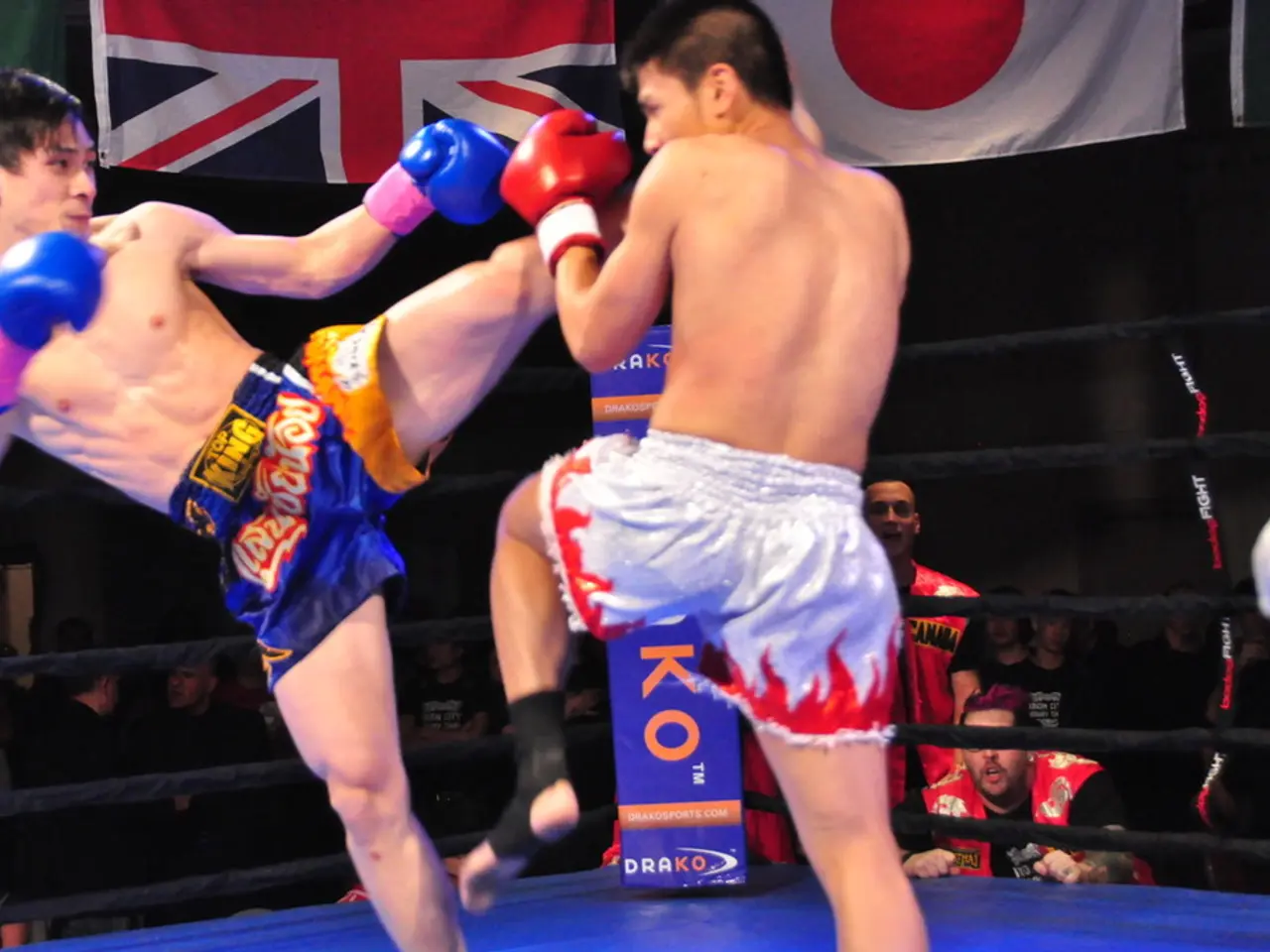Stricter Boxing Safety Measures Enacted in Japan Following Two Deadly Accidents in Quick Succession
In the wake of the tragic deaths of Shigetoshi Kotari and Hiromasa Urakawa in August 2025, Japanese boxing authorities have implemented a series of new safety measures to prevent similar tragedies.
The Oriental and Pacific Boxing Federation (OPBF) has announced that title fights will now be capped at 10 rounds instead of 12. This decision is part of a comprehensive approach aimed at preserving lives without compromising the sport's integrity.
Following the fatal brain injuries sustained by the two boxers during separate bouts at Tokyo's Korakuen Hall, Japanese boxing authorities have introduced stricter rules on weight loss to reduce rapid and extreme weight cutting, a practice linked to dehydration and increased brain injury risk. Urine tests before bouts have been introduced to measure dehydration levels in boxers, ensuring they are safely hydrated.
Ambulances are now mandatory on-site for all boxing events, not just world titles. Hospitals have been formally agreed upon and prepared to perform emergency surgery for head and other severe injuries during boxing events.
JPBA President Shoji Kobayashi has echoed the sentiment, committing to moving toward "zero accidents" in boxing. Enhanced training protocols have been implemented, including guidelines on when to halt sparring before a fight.
Prevention guidelines in boxing are set to be updated. Medical committees are being established to oversee changes in boxing, and weight rehydration limits have been established, requiring fighters who regain more than 10% of their bodyweight to compete in a higher weight class next time.
The tragic deaths of Kotari and Urakawa have not been taken lightly. Secretary-General Tsuyoshi Yasukochi has expressed the collective resolve to take all possible measures to ensure these deaths are not in vain.
Sadly, this is not the first such incident in Japan. Kazuki Anaguchi, a 23-year-old boxer, died from a subdural hematoma last year. Ginjiro Shigeoka, another boxer, suffered a similar head injury in May and remains hospitalized.
These measures signal a shift towards prioritizing athlete welfare over tradition-bound toughness in Japanese boxing. Comprehensive investigations into these deaths are underway, and safety meetings involving medical experts from professional and amateur boxing federations are planned to update guidance on injury prevention.
- In light of the tragic deaths in Japan, the Oriental and Pacific Boxing Federation (OPBF) has announced a shift towards prioritizing athlete welfare, implementing new safety measures for boxing events.
- Title fights will now be capped at 10 rounds instead of 12, as part of a comprehensive approach aimed at preserving lives while maintaining the sport's integrity.
- Stricter rules on weight loss have been introduced to reduce rapid and extreme weight cutting, which is linked to dehydration and increased brain injury risk. Urine tests before bouts have been introduced to measure dehydration levels.
- Ambulances are now mandatory on-site for all boxing events, and hospitals have been prepared to perform emergency surgery for head and other severe injuries during boxing events.
- Enhanced training protocols have been implemented, including prevention guidelines, establishment of medical committees, and weight rehydration limits, all aimed at reducing neurological disorders and other medical-conditions risk in boxers.




